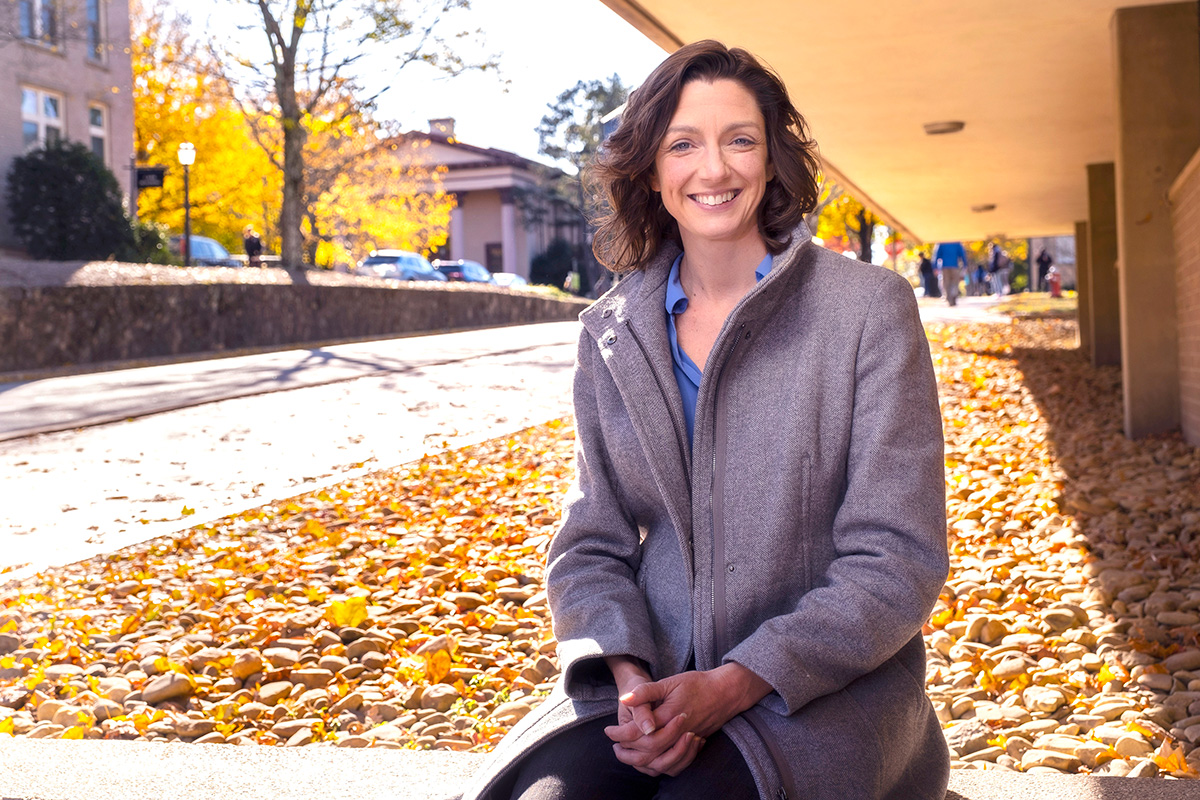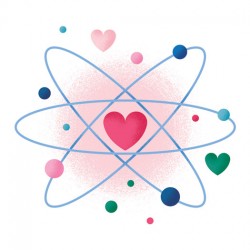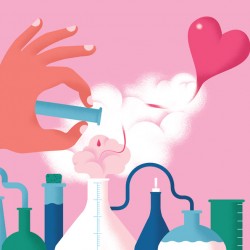Love makes the world go round, especially for psychology professor Sara Algoe ’98. For nearly 15 years, this people-watcher has invited countless couples to cuddle on a cozy couch in her Emotions and Social Interactions in Relationships Lab at the University of North Carolina–Chapel Hill.
She crafts her experiments to spark warm feelings. Every word, smile, and caress is captured on video. Algoe, an expert on gratitude and its health effects, scrutinizes recordings to detect relationship clues, tracking how often couples touch, laugh, and express thankfulness for each other.
“I’d love to try to bottle the moments of love, shared laughter, and gratitude I see. It’s such a joy and a privilege,” she says. As one of the nation’s top experts on love and happiness, she’s seen her findings on relationships covered in outlets ranging from the Wall Street Journal to PopSugar.
Algoe says that even the simplest acts have a powerful impact. After noticing that many couples laughed together, she studied her data and found that ones who did so more frequently reported greater closeness than those who shared laughs less often.
“When you’re laughing with another person, you think you see the world the same way,” she says. “It’s the marker of a high-quality relationship.”
Another Algoe experiment found that partners in an everyday loving relationship get more than mere psychological benefits. Being with a loved partner lowered their blood pressure and levels of blood inflammation, thus helping their hearts function better.
Gratitude has ripple effects, too. When test subjects heard a recording of a romantic message to a partner, they concluded the other party was a good person, even though they knew nothing about him or her.
Algoe also looks for gender differences. “We never find them,” she says. “The way I interpret it is, everybody wants to be valued.”
Algoe encourages other researchers in her field to show gratitude for each other. To aid them, she recently created The Love Consortium, an internet database where international researchers post their work in order to collaborate with others.
If it seems she is merely proving what people have always known — that love strengthens relationships and boosts partners’ mental and physical health — Algoe says it needs to be shown scientifically.
“If relationships are one of the best predictors of mental and physical health, everyday life satisfaction, and longevity,” she says, “then just like understanding the air we breathe, why shouldn’t we dig in to find out exactly what’s going on in relationships?”
Published in the Winter 2023 issue




Comments
No comments posted yet.